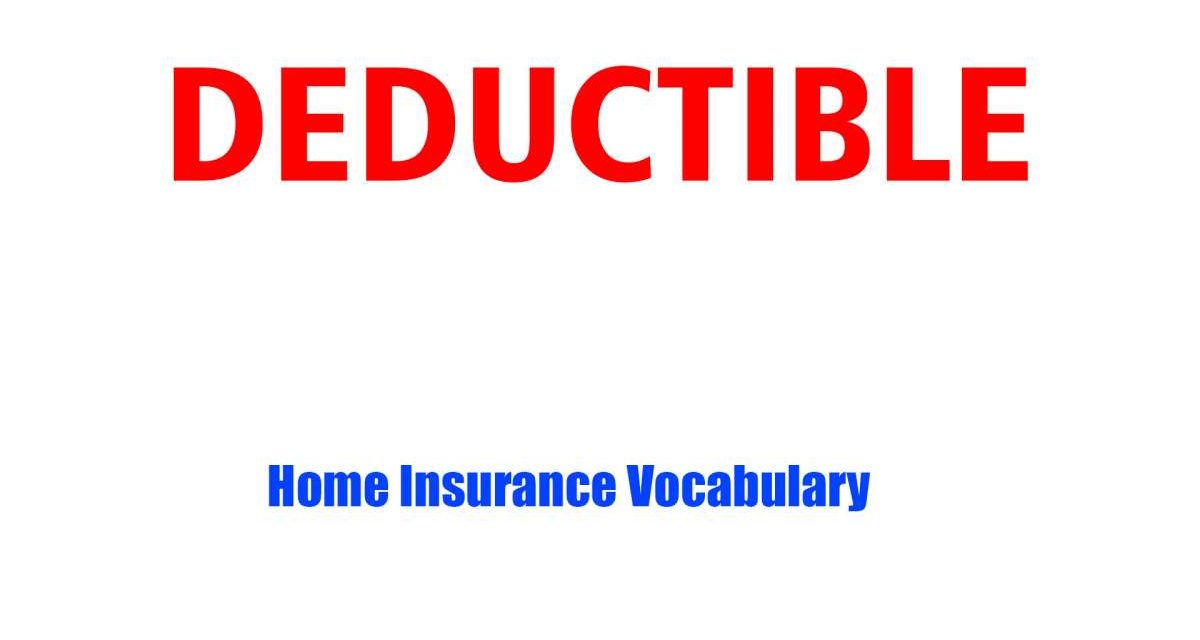A home insurance policy comprises several components, one of which is the deductible. We also have the premiums, but we will focus on the home insurance deductibles. How much do you know about it? Did you know that it plays a significant role when a homeowner makes an insurance claim? That only means that a homeowner can’t afford to ignore when purchasing a home. In this article, we will discuss this important aspect of your homeowner insurance policy as much as possible. So, without much ado, let’s dive into everything you need to know about home insurance deductible.
What is Home Insurance Deductible?
A home insurance deductible is the amount of money you commit to paying from your pocket every time you make a claim. So, set a home insurance deductible that you can afford to raise once a need for compensation arises. An excellent example is a homeowner who has committed an insurance deductible of $5000. If the house is destroyed thus needs repair, costing, let’s say $10,000, this is what goes down. When filling the claim, the homeowner will pay the agreed deductible of $5000. On the other hand, the insurance provider will pay the remaining amount, which is $5000 in this case.
It is important to note that this deductible isn’t paid monthly or annually. As mentioned earlier, it is paid every time one makes a claim. So, if something happens sometime after another incident, the homeowner will go back to his pocket and pay yet another deductible. If the new claim is worth $15000, the insurer pays $10000, whereas the homeowner coughs another $5000 once again. Additionally, if the compensation amount doesn’t exceed your deductible amount, the insurance provider won’t intervene. You will pay the amount from your pocket.
You should also note that there is no maximum out-of-pocket amount when it comes to your home insurance deductible—consequently, the amount of deductibles paid depends on the number of claims filed within a year.
However, if you are a resident of Florida, you will only pay the deductible once in case of a hurricane until the season lapses. The same case applies when filing a claim after a storm. The number of claims won’t matter if the season doesn’t change.
So, that explains what a home insurance deductible means to the homeowner.
Types of Home Insurance Deductibles
As far as homeowners insurance deductibles are concerned, there are two types. Let’s take a look at them.
-
Percentage Deductibles
These deductibles are usually a percentage of your policy’s coverage limit, as the name suggests. The percentage ranges between 1% and 5%. They also only apply when the loss or damage results from hurricanes, named storms, wind, or hail. So, if the claim following a hurricane is worth $1000, and the percentage deductible is 1%, here is what the homeowner and insurer pay. The former pays $10, whereas the latter chips in $990 for the consequential damage. In most cases, this offer is only available to residents of areas prone to these types of disasters.
-
Flat Dollar Amount Deductibles
Once again, the name pre-empty what’s expected as far as this plan goes. The amount of money you pay doesn’t depend on the amount claimed. On the contrary, the homeowner pays a constant amount of money regardless of the cost of the claim. It applies to the compensation of any loss or damage to your property. The fixed amount is often a figure between $500 and $2000. So, if your claim is worth $2000 and your flat dollar amount deductible is $500, the insurer will only foot $1500. What about a homeowner with a similar claim but a deductible of $2000? The insurance provider won’t contribute anything to the loss or damage.
The Impact of Home Insurance Deductibles on the Rates
Let’s say you settle for a flat dollar amount deductible. Your deductible, in this case, will most likely be anything between $500 and $2000. What does it mean for someone who pays the former and the other one who pays the latter? If you pay a $500 deductible, the monthly or annual premiums will be relatively higher. The case is different for the other party paying a home insurance deductible of $2000. As much as they pay low premiums, this option also has its downside. For instance, the insurance provider will not pay for any claim costs $2000 and below. Can you imagine having about 5 claims worth less than $2,000 each? The total would be about $10000, but your insurer won’t pay a dime.
As a homeowner, you have two choices. First, go for high deductibles and only enjoy compensation when the claim cost exceeds the out-of-pocket amount by a huge margin. Second, choose low deductibles and end up paying higher premiums for your policy. Once you weigh what works in your favour, go ahead and choose the best deductible in your case.
A Guide when choosing your home insurance deductible
When settling for deductibles, remember that this is important. Figure out the deductible you can comfortably raise whenever you file a claim. While doing so, consider a situation where you may have to make several claims within a short time. Remember that the deductible is paid for every claim. Once you do, it will be easy to know the right amount for you.
Choose the level of risk you want to carry. Do you want to commit to a high deductible, pay low premiums and then hope for a few claims? Alternatively, do you want to pay high premiums so as not to pay a lot as deductible if a claim becomes necessary? Once you know what you want, it will be easy to choose the smart choice.
Final Words: Home Insurance Deductibles
You will have to decide the home insurance deductibles to pay as a homeowner at the end of the day. While making this decision, let this article help you make the right one. After all, information is power, and that’s what the piece puts at your disposal. In addition to that, turn to FindMyQuotes. It offers great guidance and rates as far as home insurance and its deductibles are concerned. Since high and low home insurance deductibles have advantages and disadvantages, weigh the two before deciding. Remember that what may be perfect for one person may not be so for another. That’s because needs differ from one person to another and insurance claims are no exception.











Recent Comments